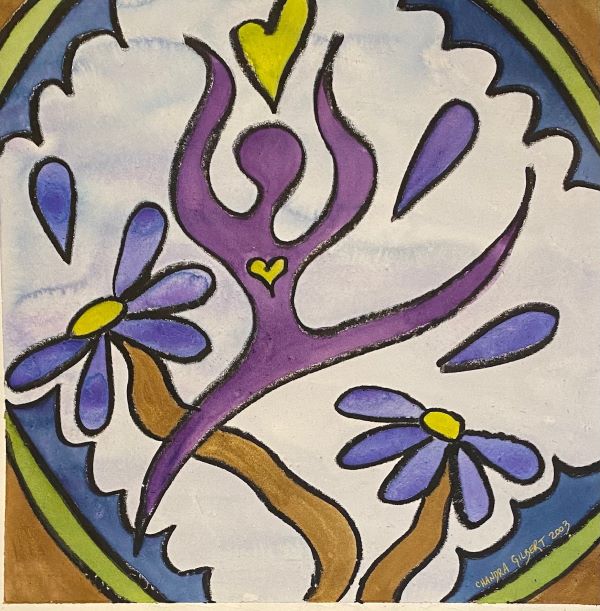Given the ever-changing events around the COVID-19 pandemic, we are all experiencing varying degrees of a normal reaction to an abnormal event.”
Mental Health Commission of Canada
Indeed, COVID-19 has created tough times.
Even during times of stability many of us encounter some level of distress. But this is a time of instability with restrictions and lockdowns. Most of us are dealing with moments of loneliness, economic insecurity, increased or decreased work demands, and loss of personal freedom.
Many individuals – both younger and older – talk about being on the edge. They have a sense of being out of alignment; that their inner selves cannot keep up with the changing realities of the pandemic. You see, COVID-19 is that extra distress that is tipping many people over into increased anxiety, depression, self-doubt, conflict, loss, and trauma.
Psychological difficulties are rampantly showing up. Every anxious thought seems suddenly probable, and every rejection, disagreement, and mistake appear to be foreseeing disaster. Having goals, dreams and exploring possibilities seems trivial or unattainable.
The masses need help!
You may be among the masses or know someone who is. In the meantime, lines such as “Pull yourself together” or “You will get through it” are no longer glibly used. Like never before we need therapy to be adaptable, accessible, and effective.
Therapy is Changing to Meet the Need
Mental-health hotlines are increasing staff, while support agencies and mental health professionals are upgrading their training and their ability to provide online services.
Online Counselling
During COVID-19, some therapists were able to offer in-office sessions using their health region’s protocols. Other practitioners adapted to connecting with and supporting their clients online. Virtual challenges include seeing one another’s homes, providing an empathetic face through a pixelated lens, and ensuring quality sound. Practitioners need to address the inability to pick up on whole body language and other nuances.
The good news is that most mental-health hotlines, agencies, and professionals are committed to continuing to provide services to their hyper-distressed clients. To that end, they have become informed, have adapted to heightened client needs, and have moved to, or are more effective, online.
We have discovered that many clients feel safer and more comfortable meeting virtually in the comfort and convenience of their homes. They appreciate that they need not add the stress of driving and finding a parking spot at a clinic.
We have also discovered that some clients, due to loneliness, need extra connection time, while others, who are crowded in their homes, want shorter sessions. Clients and practitioners have been called to demonstrate adaptability and find new solutions. One solution is the Finding Joy – Trauma Treatment Technique (FJ-TTT).
An Effective Trauma Therapy
Finding Joy – Trauma Treatment Technique™
Therapeutic models continue to be developed and improved. They range from the standard and step-by-step Cognitive-Behavioral Therapy to Adlerian Therapy, Art Therapy, Compassion Focused Therapy, Internal Family Systems, Integrative Body Psychotherapy, Eye Movement Desensitization and Reprocessing (EMDR) and Accelerated Resolution Therapy, to name only a few. It is important for clients to choose the best fit model and therapist for their healing journey.
The Finding Joy – Trauma Treatment Technique™ (FJ-TTT) has been used since 2007 with consistently good results. It is a particularly good fit for our turbulent times for a variety of reasons. FJ-TTT offers these benefits:
- Most of our practitioners offer their services online or both online and in person.
- Clients’ eyes are closed during the guided awareness and healing portions of the primary processing steps. This helps alleviate screen fatigue.
- A variety of established therapies have been integrated into a compact and time effective protocol.
- The protocol is effective for a wide range of issues including anxiety, loss, sleep disturbance, childhood issues, depression, and trauma.
- It can address past, present, and/or future concerns or worries.
- Most specific issues can be resolved in two sessions.
- Clients receive resources to enable them to independently process their issues, if they wish.
- There is no effort to change our clients, but rather we support them in achieving issue resolution.
Regardless of the challenges of the dreaded COVID-19, you can minimize your personal angst and increase your self-love, sense of peace, and inner joy by using this marvellous tool.
Guest author: Patricia Morgan, MA CCC

